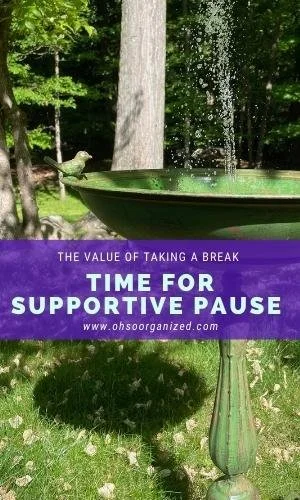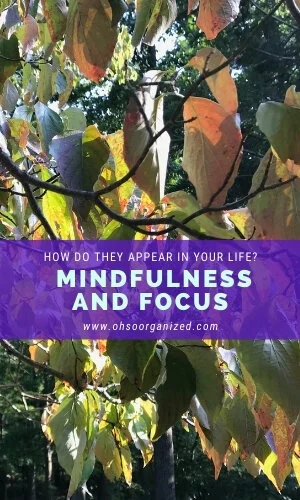It’s a transition time as we shift from spring to summer. While it’s officially not summer yet, school has ended or is about to. Graduation parties and celebrations are in full swing, vacation plans, and summer camp arrangements are happening, and many of us want a change of pace. Life is full. There are times when days fly by with one thing after the next. No breaks, just a continual tempo of go, go, going. Does that sound familiar?
I strike a reasonable balance between doing and not doing on most days. However, my strong internal motivation makes it challenging to feel OK with not achieving, accomplishing, or moving the newest project forward. I recognize the importance of rest. I’m not talking about sleep. We definitely need sleep to function well. The rest I’m referring to is a pause or break. Taking a short time away from your schedule can significantly improve your state of mind. Meditate, sit in the sun, listen to the fountain water flowing, or watch the grasses moving in the breeze. If you continually go without stopping, you’ll burn out. What’s the point of that? Is it time for a pause?
This transition period can cause overwhelm and stress from the demands of your to-do lists, commitments, and lack of time. I’m sharing a personal journal entry I wrote recently about the value of the pause. During a retreat led by my wonderful friend and colleague, Yota Schneider, she guided us in a group meditation and offered a prompt about “What does your ship need?” We did a ‘free write,’ reflecting on what came up during the quiet.
LINDA’S JOURNAL ENTRY
A few thoughts were prompted by these things- my ‘wander’ coffee mug, being on the water in a kyack without my life preserver, and the desire to float.
Leaving the port or landing, I headed up the river in the bright fuschia-colored kyack. Low to the water, I paddled upstream and noticed I had no life preserver. I always wear one, but not this time.
I kept paddling and then stopped to float. The sun warmed me as the gentle breeze created a beautiful counterbalance- keeping my skin at a ‘just right’ temperature.
I was there on the river as I floated, doing nothing, going nowhere in particular. Enjoying the being-ness of being. I thought of my ‘wander’ mug that I love sipping my morning coffee from on certain days. The cup isn’t picked on the highly scheduled days. On those days, it's likely the ‘be curious’ mug I choose. But on my float days, ‘wander’ is the cup of choice.
So as I drifted without paddling, feeling the warm sun and the gentle breeze, I knew deep within my soul that it was my desire, my intense desire not only to NOT do but to be completely content not doing or accomplishing or seeking.
It was a float day. It was a time of wander, a time to just be present as my kyack, this soothing vessel helped me journey on this much-needed pause.
“If you continually go without stopping, you’ll burn out.”
Is it time for a break? What value would that have? What does a great pause feel like to you? I’d love to hear your thoughts. I invite you to join the conversation.









